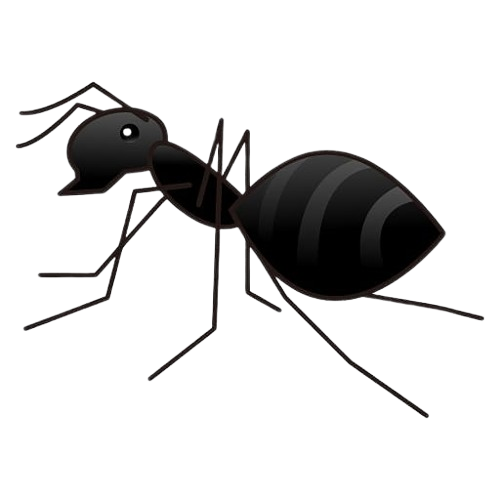
Dec 29, 2025 | Florida Pest Control
December in Broward County brings milder temperatures and a welcome break from the year-round heat. As residents enjoy the pleasant weather, house mice are also on the move, seeking refuge from the subtle chill. While Florida’s winters are not severe, this seasonal shift is enough to drive these small rodents indoors, making December a peak month for infestations in local homes.
Understanding why these pests become more active during this time is the first step toward effective prevention. For homeowners, being proactive is key to maintaining a comfortable and pest-free property. This guide outlines why house mice invade Broward homes in December, the issues they can cause, and proven strategies to keep them out.
Why December is a Prime Time for Mouse Invasions
Even in South Florida, the slight drop in temperature is a significant environmental cue for house mice. Their behavior changes as they instinctively search for stable, warm environments with reliable access to food and water—and your home provides everything they need.
The Search for Warmth
As outdoor temperatures fluctuate, mice seek consistent warmth to nest and breed. A house mouse can squeeze through an opening as small as a dime, easily gaining access to wall voids, attics, crawlspaces, and the spaces behind appliances. These secluded areas offer the perfect shelter to ride out the cooler parts of the year.
A Consistent Food Source
During winter, natural food sources like seeds and plants become less abundant outdoors. Your kitchen and pantry become an irresistible target. Unsealed food containers, crumbs on the floor, and accessible pet food bowls are an open invitation for mice to settle in. Once a food source is established, they have no incentive to leave.
The Risks Associated with House Mice
A mouse infestation is more than just a minor inconvenience. These rodents can introduce considerable problems into your home, affecting both your property and your living conditions.
Damage to Property
House mice have incisors that grow continuously, which means they must gnaw constantly to keep them filed down. This behavior can lead to significant damage.
- Electrical Wires: Mice frequently chew on electrical wiring, stripping the insulation and creating a serious fire hazard.
- Structural Elements: They can gnaw through drywall, wood, and plastic pipes, compromising your home’s structure and potentially causing leaks.
- Insulation: Mice will tear up insulation in attics and walls to create nesting material, reducing your home’s energy efficiency.
Unsanitary Living Conditions
Mice are not clean animals. They leave a trail of droppings and urine as they travel, contaminating countertops, pantry shelves, and other surfaces. They are capable of carrying and transmitting germs, which can compromise the cleanliness of your home environment. They can also bring in other pests, such as fleas and ticks.
Effective Prevention Strategies for Your Home
The most reliable way to handle a mouse problem is to prevent it from starting. Making your home less accessible and attractive to rodents is your best defense.
Seal Potential Entry Points
A thorough inspection of your home’s exterior can reveal vulnerable spots.
- Fill all cracks and holes in the foundation, walls, and roofline. Use steel wool and caulk for a rodent-proof seal.
- Install weather stripping on doors and place sweeps on garage doors to close gaps.
- Cover vents and utility openings with sturdy wire mesh.
Remove Indoor Attractants
Do not provide the resources mice need to survive and thrive.
- Store all food—including pet food and birdseed—in airtight glass or metal containers.
- Maintain a clean kitchen by wiping up spills and crumbs immediately.
- Use trash receptacles with tight-fitting lids and empty them regularly.
- Fix leaky pipes and faucets to eliminate water sources.
You should not have to share your home with pests. A professional pest control expert can perform a detailed inspection to identify entry points and the extent of the infestation. They will implement a comprehensive management plan to resolve the issue and help you secure your home against future invasions. Contact a rodent control specialist today for an inspection and enjoy peace of mind in your Broward home this December.
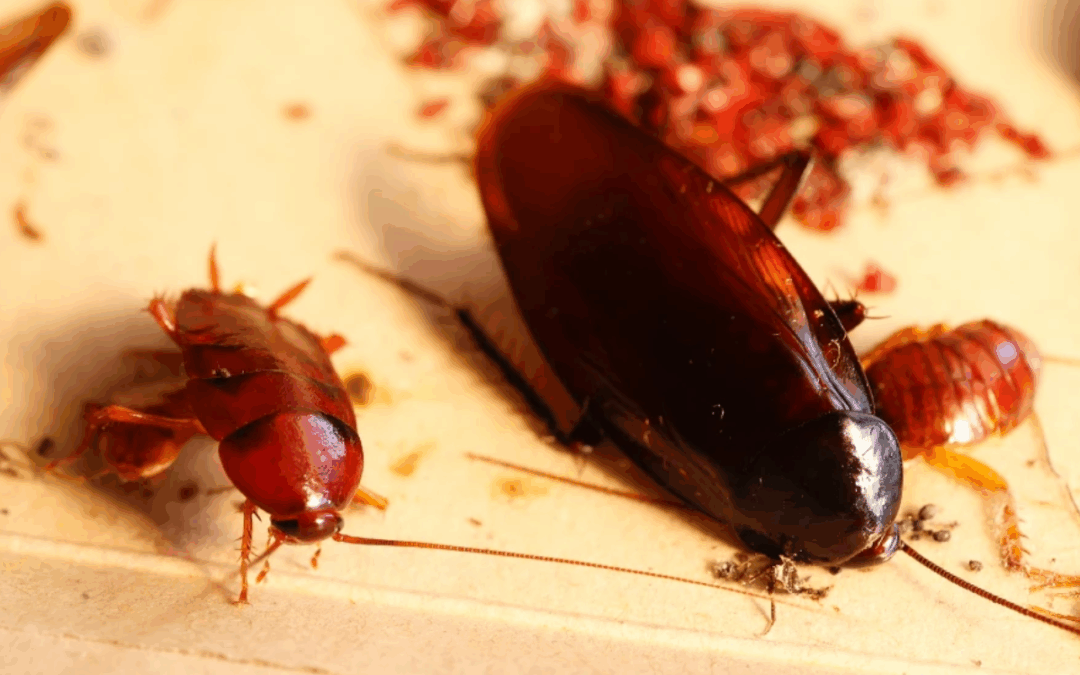
Dec 8, 2025 | Florida Pest Control
November in Miami brings cooler weather, but it also drives smokybrown cockroaches indoors. Unlike other roaches, these large, winged pests aren’t attracted to filth—they’re seeking shelter for the cooler months. This guide explains how to identify them, why they move inside in November, and how to keep your home roach-free.
Getting to Know the Smokybrown Cockroach
The Smokybrown cockroach (Periplaneta fuliginosa) is a large species, typically measuring over an inch long. They are a uniform, shiny mahogany or black color and have fully developed wings that extend beyond their bodies. While they are strong fliers, they are often more attracted to light than other roach species.
These roaches are outdoor dwellers by nature. They thrive in warm, humid environments and are commonly found in areas with plenty of moisture and organic matter, such as:
- Mulch and leaf litter
- Tree holes and stumps
- Greenhouses and planters
- Gutters filled with debris
Unlike German cockroaches, which infest kitchens and bathrooms in search of crumbs, Smokybrowns need a high degree of humidity to survive and will dehydrate quickly without it.
Why Are They Invading Miami Homes in December?
As the season changes, so do the living conditions for Smokybrown cockroaches. Even the subtle temperature drop and drier air of a Miami November can be enough to drive them indoors in search of a more stable environment.
A Need for Moisture
The primary driver for a Smokybrown cockroach invasion is moisture. As the air becomes less humid, these roaches will migrate toward areas that can provide the dampness they require. Your home may offer several attractive spots, including basements, crawlspaces, laundry rooms, and bathrooms.
Shelter from the Elements
Your home provides protection from cooler temperatures and predators. Smokybrowns will exploit any available opening to gain access, often hiding in attics, wall voids, or behind cabinets where they can remain undisturbed.
The Issues with a Smokybrown Infestation
While a single roach might seem like a minor issue, their presence can indicate a larger problem. You should not have to share your living space with these pests.
- Contamination: Cockroaches walk across a variety of surfaces, including garbage and decaying matter, before crawling over your countertops, dishes, and food preparation areas. This can lead to the spread of germs throughout your home.
- Allergens: Cockroach droppings, saliva, and shed skins contain proteins that can trigger allergic reactions and asthma attacks, particularly in sensitive individuals and children.
- A Sign of a Larger Problem: Seeing Smokybrowns indoors often points to a moisture issue or an unsealed entry point that could allow other pests to enter as well.
How to Prevent an Indoor Invasion
Proactive prevention is the most effective way to keep Smokybrown cockroaches out of your home. The focus should be on exclusion and reducing moisture.
Seal Your Home’s Exterior
Conduct a thorough inspection of your property and seal any potential entry points.
- Fill cracks in the foundation and gaps around pipes with caulk or sealant.
- Install weather stripping on doors and windows to ensure a tight fit.
- Repair or replace damaged screens.
- Cover attic vents and other openings with fine mesh.
Reduce Moisture Levels
Make your home less attractive by controlling humidity.
- Fix leaky faucets, pipes, and drains immediately.
- Ensure crawlspaces and attics are properly ventilated.
- Use dehumidifiers in damp areas like basements.
- Keep gutters clean and ensure they direct water away from the foundation.
Maintain Your Yard
Since these roaches live outdoors, managing your landscape is key.
- Keep mulch and pine straw at least a foot away from your home’s foundation.
- Clear away leaf litter, woodpiles, and other organic debris.
- Trim tree branches and shrubs so they do not touch the house.
Don’t let these sneaky invaders disrupt your holiday season. Contact a pest control professional to schedule an inspection and ensure your Miami home remains a comfortable, pest-free environment.

Nov 27, 2025 | Florida Pest Control
As November arrives in Pompano, Florida, residents often notice an increase in spider activity both inside and outside their homes. While spiders are a year-round presence in our tropical climate, this time of year can make them seem more prevalent. The appearance of more webs and uninvited eight-legged guests can be unsettling for any homeowner.
Understanding why you might be seeing more spiders is the first step toward effective management. This guide provides information on common Pompano spiders, explains their fall behavior, and offers practical strategies for keeping your home spider-free. A proactive approach is essential for reliable Pompano spider control.
Why Spiders Become More Noticeable in November
The increased visibility of spiders during the fall in Pompano is often linked to their life cycle and the behavior of their prey.
Mating Season and Maturation
For many spider species, late summer and fall are peak mating seasons. Male spiders, which typically lead more reclusive lives, will actively wander in search of a mate. This increased movement makes them far more likely to be seen crossing floors, walls, and patios. Additionally, many spiders born in the spring have reached full maturity by November, meaning they are larger and their webs are more substantial and noticeable.
Abundance of Other Insects
November often sees a surge in other insects seeking shelter from changing conditions. Spiders are predators, and they go where the food is. An increase in flies, gnats, and other small pests around your home provides an abundant food source, attracting spiders to build webs near doorways, windows, and exterior lights.
Common Spiders in Pompano and Associated Risks
While most spiders found in Florida are harmless and beneficial to the ecosystem, a few species warrant caution.
- Black Widows: Known for their shiny black bodies and a distinct red hourglass marking on the abdomen, black widows prefer dark, undisturbed areas like woodpiles, sheds, and cluttered garages. Their bite is venomous and requires immediate medical attention.
- Common House Spiders: These are the spiders you most frequently see, building webs in corners and windows. They are not dangerous to humans and primarily serve as a nuisance.
Proven Strategies for Pompano Spider Control
The most effective way to manage spiders is to make your home less inviting to them and their prey. A comprehensive prevention plan is the cornerstone of effective Pompano spider control.
Seal Entry Points
Denying spiders access to your home is the most crucial step.
- Inspect Your Home’s Exterior: Carefully examine your foundation, siding, and areas around pipes and vents for cracks and gaps.
- Seal Openings: Use caulk to seal any openings you find. Install or repair screens on windows and doors, and add weather stripping to ensure a tight seal.
Eliminate Attractants
By removing sources of food and shelter, you make your property less appealing.
- Reduce Exterior Lighting: Outdoor lights attract the insects that spiders feed on. Consider using yellow “bug lights” or motion-sensor lights to minimize this effect.
- Maintain Your Landscaping: Keep shrubs, trees, and other vegetation trimmed back from your home’s exterior. Spiders use branches as bridges to access your house. Remove leaf litter, woodpiles, and other debris that can serve as harborage.
- Keep Your Home Tidy: Regularly dust and vacuum, especially in corners, under furniture, and in closets. This removes webs, egg sacs, and the spiders themselves.
Implementing these preventative measures can significantly reduce the number of spiders you encounter. A clean, well-sealed home is your best defense.
If you are dealing with a persistent spider problem or have identified venomous species like black widows on your property, it is best to seek professional assistance. Contact a certified pest control expert for a thorough inspection and a targeted treatment plan to ensure the well-being and comfort of your home.
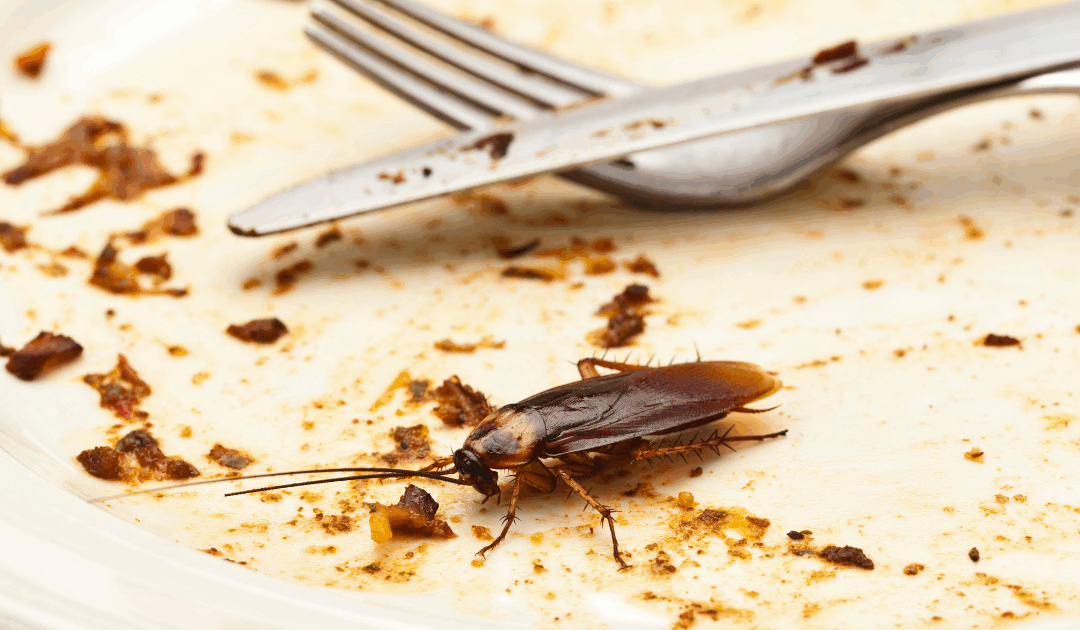
Oct 24, 2025 | Florida Pest Control
Finding cockroaches in your Naples home can be unsettling, often raising the question: do they bite? While the idea is alarming, it’s important to separate fact from fiction. Understanding the real risks helps you protect your household and take effective action. This guide clarifies the truth about cockroach bites, outlines actual health concerns, and offers practical prevention tips.
Do Cockroaches Actually Bite Humans?
The Reality of a Cockroach Bite
Yes, cockroaches can bite, but it’s extremely rare. They are not aggressive toward humans and only bite under extreme conditions, such as a severe infestation with scarce food. Bites may occur on fingernails, eyelashes, or calloused skin, usually while a person is sleeping.
Identifying a Potential Bite
A bite appears as a small, red, raised bump similar to a mosquito bite. It may become itchy or inflamed. Due to its generic appearance, it’s nearly impossible to confirm a cockroach bite without signs of a significant infestation.
The Real Health Risks of a Cockroach Infestation
Contamination and Disease Transmission
Cockroaches frequent unsanitary places like drains, sewers, and garbage, picking up bacteria and pathogens. As they crawl across food, counters, and utensils, they can transfer germs like Salmonella and E. coli, increasing the risk of illness.
Allergies and Asthma Triggers
Cockroach saliva, droppings, and shed skins contain proteins that become airborne allergens. Sensitive individuals, particularly children and the elderly, may experience allergic reactions, rashes, sinus infections, and asthma attacks. Infestations can significantly reduce indoor air quality.
How to Prevent Cockroaches in Your Naples Home
Eliminating Food and Water Sources
Make your home inhospitable to cockroaches with diligent sanitation.
- Wipe up crumbs and spills immediately and avoid leaving dirty dishes overnight.
- Store all food, including pet food, in airtight containers.
- Use trash cans with tight lids and remove garbage regularly.
- Repair leaky faucets and pipes to remove moisture sources.
Sealing Entry Points and Reducing Clutter
Prevent access and remove hiding spots.
- Seal cracks in walls, around pipes, and along baseboards.
- Check doors and windows for intact weather stripping and screen integrity.
- Declutter areas like cardboard boxes and stacked newspapers to reduce harborage.
Keeping Your Home Cockroach-Free
Sanitation, moisture control, and sealing potential entry points are your first defense. While bites are rare, contamination and allergens are real concerns. If you spot cockroach activity, it signals a problem that should be addressed promptly.
Call a certified pest control technician for a thorough inspection and a targeted treatment plan to protect your home and enjoy peace of mind this season.
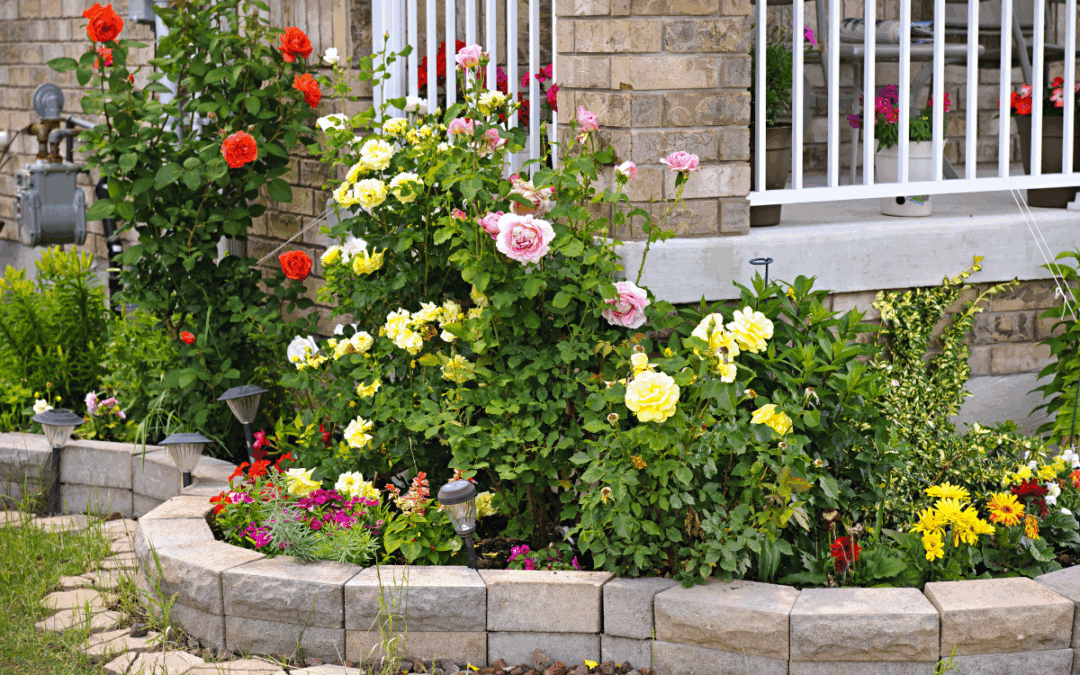
Oct 10, 2025 | Florida Pest Control
Florida’s fall gardening season is a rewarding time, offering a break from the summer heat. Mild temperatures also create ideal conditions for pests. Protecting your vegetable patches, flower beds, and ornamental plants is key to maintaining a healthy, productive garden. This guide highlights common fall garden pests and provides responsible strategies to keep them in check, ensuring your garden remains a vibrant oasis.
Common Fall Garden Pests in Florida
Caterpillars and Worms
Species like armyworms, loopers, and hornworms are active in the fall. They can defoliate plants, skeletonize leaves, and bore into fruits like tomatoes. Their camouflage makes early detection challenging, so frequent inspections are important.
Aphids and Whiteflies
These sap-sucking insects congregate on new growth or the undersides of leaves. They drain nutrients, causing yellowing leaves and stunted growth, and excrete honeydew, which can lead to sooty mold.
Stink Bugs and Leaf-Footed Bugs
Using piercing-sucking mouthparts, they feed on fruits, vegetables, and seeds. Feeding damage can cause discolored, sunken spots and reduce crop quality. Large populations can significantly impact yields.
Responsible Pest Management Strategies
Promote a Healthy Garden Environment
Strong, healthy plants resist pests better.
- Improve Soil Health: Add compost and organic matter for essential nutrients.
- Proper Watering: Water deeply at the base to avoid wet foliage.
- Select Resistant Varieties: Choose plant varieties resistant to local pests.
Implement Physical and Mechanical Controls
Hands-on methods are often the most effective first step.
- Regular Inspections: Check your garden daily for signs of pests.
- Handpicking: Remove larger pests like caterpillars and stink bugs.
- Use Barriers: Floating row covers protect seedlings from pests like whiteflies.
Encourage Beneficial Insects
“Good bugs” like ladybugs, lacewings, and parasitic wasps prey on garden pests. Plant herbs like dill, fennel, and cilantro to attract these natural allies.
Keeping Your Fall Garden Healthy
Vigilance, prevention, and creating a balanced ecosystem are the best ways to protect your garden this fall. Focus on soil health, physical barriers, and beneficial insects to reduce pest pressure naturally.
If fall garden pests become persistent despite your efforts, a professional can assess your garden, identify the problem, and provide a tailored management plan. Keep your plants thriving and bug-free by contacting a certified pest control expert today.
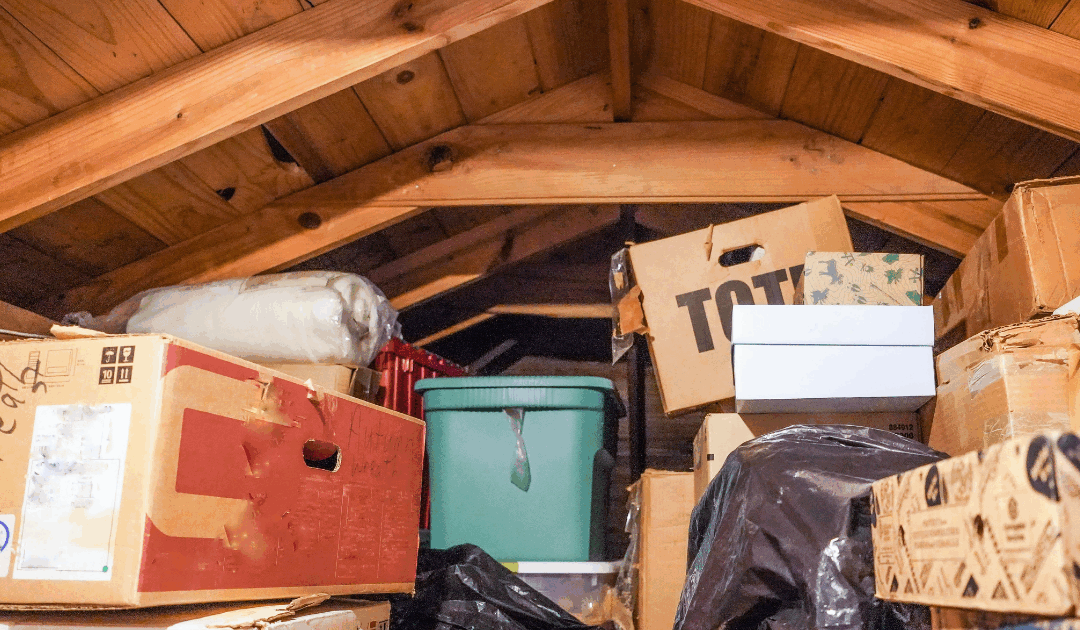
Oct 3, 2025 | Florida Pest Control
As fall arrives in Bonita Springs, many homeowners prepare for cooler, drier months. While the change in weather is welcome, it also means pests begin seeking shelter. Your attic, with its warmth and seclusion, is a prime spot for unwanted guests. Addressing these attic pests quickly helps prevent costly damage and keeps your home healthy.
Common Attic Pests in Bonita Springs
Rodents (Rats and Mice)
Roof rats are especially common in this region. They can squeeze through small openings along the roofline and cause serious damage by gnawing wires, creating fire hazards, and shredding insulation.
Squirrels
Squirrels often chew through eaves, fascia boards, and vents to get inside. Their presence is usually noisy, with scratching and scurrying sounds in the morning and evening. They also damage insulation and leave droppings behind.
Raccoons
Raccoons are larger and more forceful intruders. They may tear through shingles or vents to create entry points, especially when looking for a dry place to nest. They can cause significant structural damage and may carry diseases that put people and pets at risk.
Signs of an Infestation in Your Attic
Strange Noises
Scratching, scurrying, gnawing, or chirping noises are early signs of attic activity. These sounds are often heard at night or in the early morning.
Droppings and Urine Stains
Animal droppings are a clear indicator of pests. Urine stains may also appear on ceilings or walls if the issue is severe.
Nests and Damaged Materials
Shredded insulation, chewed wires, or torn ductwork are all signs of nesting pests. Debris like leaves or twigs inside the attic may also point to an active infestation.
Effective Removal and Prevention Strategies
Seal Entry Points
Inspect the exterior of your home and seal cracks, gaps, and holes in the roof, soffits, and foundation. Install mesh screening over vents and a chimney cap to block wildlife.
Trim Vegetation and Remove Attractants
Tree limbs touching the roof provide an easy path for pests. Trim branches several feet back, secure outdoor trash cans, and avoid leaving pet food outside.
Keeping Your Attic Peaceful This Fall
The best way to keep your attic pest-free is to know what signs to look for, seal off entry points, and make your home less inviting to wildlife. By staying a step ahead, you can avoid the damage and mess that attic pests often leave behind.
If you do notice noises, droppings, or damage, it is always a good idea to have an expert take a closer look. Call today to schedule a pest control inspection and make sure your attic is ready for the season ahead. Contact Northwest today for a free pest control quote!
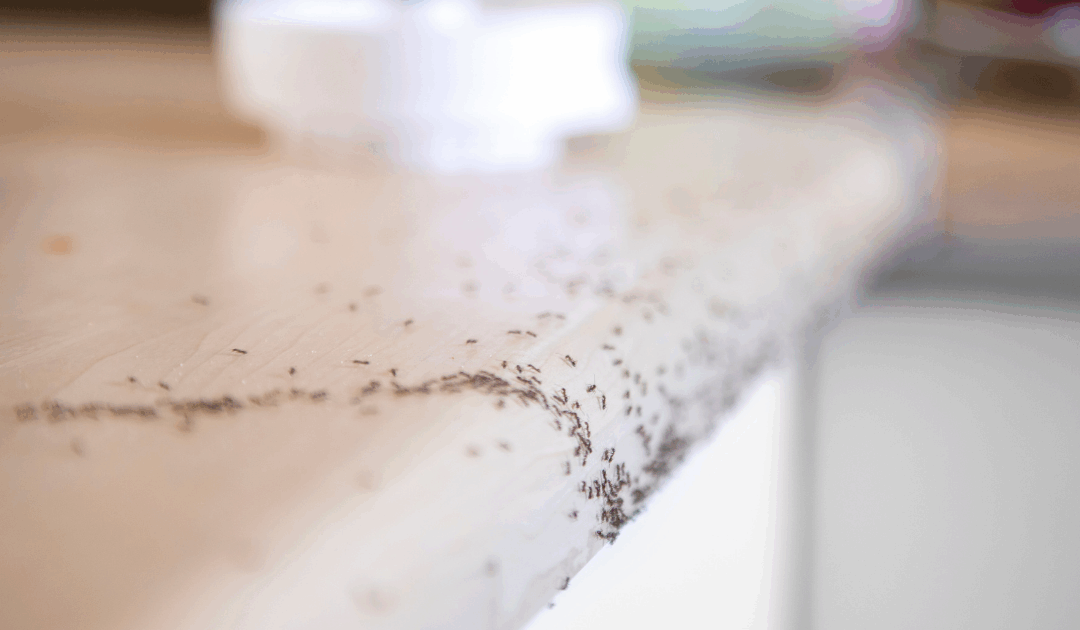
Sep 12, 2025 | Florida Pest Control
Fort Myers residents know the frustration well. You clean your kitchen, and within hours, a steady line of ants appears across the counters. Florida’s year-round warmth and humidity create ideal conditions for ant colonies to thrive, making prevention and control a regular part of maintaining a comfortable home. The good news is that lasting ant control is possible with proven strategies that protect both your family and the natural environment of Southwest Florida. Here’s how to tackle these persistent pests while keeping the area’s delicate ecosystem in mind.
Ant Control in Fort Myers
Understanding Fort Myers’ Ant Population
Southwest Florida’s subtropical climate supports several ant species that frequently invade homes. Ghost ants, with their translucent legs and bodies, often appear in kitchens and bathrooms in search of moisture and food. Fire ants build aggressive colonies in yards and deliver painful stings, while carpenter ants can damage wood structures as they tunnel to build nests.
Pharaoh ants present a unique challenge because they create multiple colonies and require specialized management. These tiny yellow ants can contaminate food and spread bacteria, making prompt action important for protecting health.
Each species behaves differently, so understanding their habits is key to choosing the right control methods.
Why Traditional Ant Control Methods Often Fall Short
Over-the-counter sprays may kill visible ants but rarely address the colony itself. Without eliminating the source, infestations often return. This cycle leads to repeated treatments that can affect beneficial insects, pollinators, and water quality in sensitive coastal areas.
Effective ant management requires a comprehensive approach that targets colonies, prevents new infestations, and protects the environment.
Natural Prevention Strategies That Work
Eliminate Entry Points
Inspect your home for cracks, gaps, and openings that ants could use to get inside. Common trouble spots include windows, doors, and utility penetrations. Seal gaps with weatherproof caulk, repair screens, and install door sweeps to block access.
Pay extra attention to moisture-prone areas. Afternoon storms in Fort Myers can create damp conditions that attract ants, so sealing these areas also supports moisture control.
Maintain Strategic Cleanliness
Reduce attractants by cleaning surfaces promptly after food preparation, especially behind appliances where crumbs and spills can go unnoticed. Store all food, including pet food, in sealed containers.
Empty trash bins regularly and ensure lids fit tightly. Wiping down surfaces with vinegar can erase the scent trails ants use to navigate, making your home less inviting.
Manage Moisture Levels
Proper ventilation and dehumidification help reduce indoor humidity. Address plumbing leaks promptly and check under sinks, around water heaters, and near outdoor faucets for moisture buildup.
Outside, improve drainage and keep gutters clear to prevent water pooling around the foundation.
Effective Natural Deterrents
Essential Oils
Peppermint oil is a well-known ant deterrent. Mix 10–15 drops with water in a spray bottle and apply to baseboards, entry points, and areas where ants are active. Tea tree and lemon oils offer additional protection and a pleasant scent.
Food-Grade Options
Diatomaceous earth damages the exoskeletons of crawling insects and works well when applied along trails and near entry points. Cinnamon powder can create a barrier ants will avoid, and ground coffee can deter several species while adding a subtle aroma.
Landscape Adjustments
Plant ant-repelling species such as mint, tansy, or pennyroyal along the perimeter of your home. Trim vegetation so it does not touch exterior walls, as plants can act as bridges for ants to enter.
Maintaining Long-Term Success
Ant control is most effective when prevention, sanitation, moisture management, and monitoring work together. Seasonal inspections help identify and address vulnerabilities early.
Keeping a record of what works on your property allows you to refine your approach over time. With consistent attention, these strategies help create an environment where ants are far less likely to take up residence, protecting both your home and Fort Myers’ coastal ecosystem. Contact local pest control professionals for a free ant control quote today!
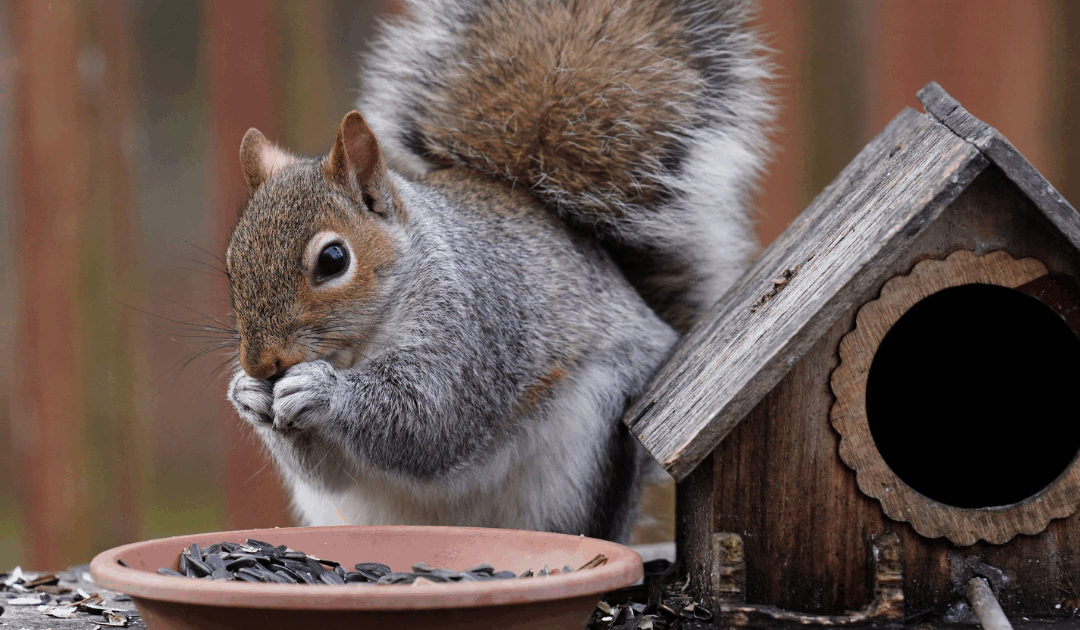
Sep 5, 2025 | Florida Pest Control
Broward County’s year-round warmth and lush vegetation make it a haven for squirrels. While they can be entertaining in parks, these agile climbers are less welcome when they invade attics, damage gardens, or chew through home structures. By understanding squirrel behavior and using strategies tailored to South Florida, homeowners can protect their property while maintaining balance with the local environment.
Understanding Broward County’s Squirrel Population
South Florida is home to several squirrel species, with gray squirrels and fox squirrels most common around residential areas. They use power lines, fences, and trees as travel routes and often seek shelter in attics, sheds, or crawl spaces.
Because Broward’s climate keeps squirrels active all year, the risk of property damage, noise, and potential health concerns is ongoing. Females typically have two litters a year—late winter and mid-summer—making these peak times for activity.
Signs of Squirrel Problems in Your Home
Early detection helps prevent costly repairs. Common signs include scratching or scampering in attics, especially at dawn or dusk, chewed roof edges or soffits, damaged screens, and gnaw marks on wood or wires. Outdoors, you may notice disturbed bird feeders, dug-up flower beds, or plants stripped of fruit and vegetables.
Natural Prevention Strategies
Habitat Modification
Remove attractants that encourage squirrels to linger. Trim branches at least six feet from the roof, clear fallen fruit and nuts promptly, and relocate or squirrel-proof bird feeders.
Physical Exclusion Methods
Cover vents, chimneys, and other openings with hardware cloth or metal screening, using mesh smaller than one inch. Seal gaps with caulk, foam, or metal patches, and reinforce vulnerable roof edges with flashing.
Eco-Friendly Deterrent Solutions
Natural Repellent Applications
Sprinkle cayenne pepper or hot sauce around problem areas, or place cotton balls soaked in peppermint, eucalyptus, or citrus oil near entry points. Predator scents, like fox or coyote urine, can also discourage squirrels.
Strategic Garden Protection
Use lightweight row covers, plant squirrel-resistant flowers like marigolds and alliums, or create decoy feeding spots away from your home and garden.
Attic and Roof Protection
Inspection and Monitoring
Check attics and roofs regularly for signs of damage or nesting materials. Pay special attention after storms, which can create new entry points. Motion-activated cameras can help track activity patterns.
Professional-Grade Solutions
Install chimney caps, vent guards, and tree banding to block climbing routes. These measures reduce access without harming wildlife.
Safe and Humane Management Practices
Live Trapping Considerations
If removal is necessary, use humane live traps with appropriate bait, following Broward County regulations on relocation. Complex situations may require trained wildlife experts who understand local squirrel behavior.
Long-Term Population Management
Encourage natural predators, and coordinate with neighbors for community-wide prevention efforts. Consistent approaches reduce squirrel pressure across the area.
Maintaining Long-Term Success
Broward squirrel control works best with ongoing attention—seasonal inspections, refreshed deterrents, and regular maintenance of exclusion methods. By combining habitat changes, physical barriers, and humane deterrents, you can keep squirrels from becoming long-term houseguests while still protecting the wildlife that makes South Florida unique. For stubborn or recurring issues, experienced pest control professionals can help ensure your home stays squirrel-free. Contact pest control near you for a free quote!
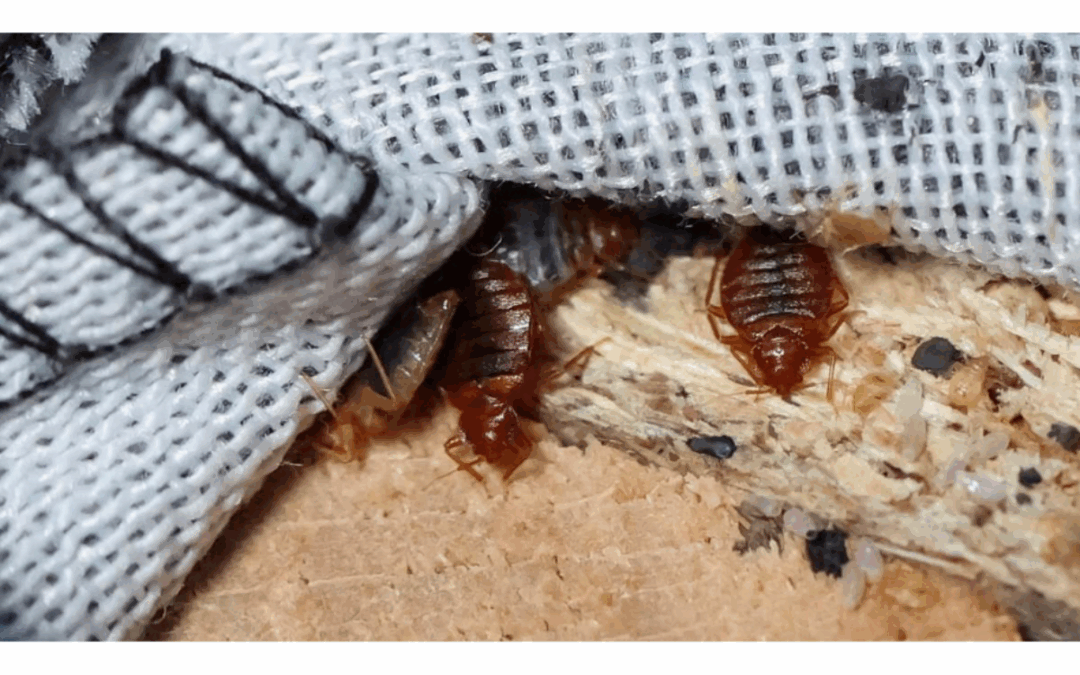
Aug 27, 2025 | Florida Pest Control
Florida summers mean sunny beaches and family fun—but also an increase in bed bug activity. The warmer months bring ideal conditions for these pests to reproduce and spread, especially with more people traveling. Knowing why summer is peak bed bug season and how to prevent them can help protect your home.
Bed Bug Season in Florida
Why Summer Is Peak Season for Bed Bugs in Florida
Bed bugs thrive in Florida’s summer climate. Here’s why they become more active:
- Warm Temperatures
Summer heat speeds up bed bug reproduction. A female can lay hundreds of eggs, and warm temps help them hatch and mature faster.
- Increased Travel
Tourists and locals alike travel more in summer, which increases the risk of spreading bed bugs through luggage and clothing.
- High Humidity
Bed bugs prefer humid environments, and Florida’s moisture-rich air helps them survive longer indoors.
Why Bed Bugs Are More Than Just a Nuisance
Bed bug infestations can lead to a range of issues beyond the annoyance of bites:
- Health Irritations
Bites can cause red welts, itching, and in some cases, allergic reactions. Even without disease transmission, they can disrupt sleep and comfort.
- Financial Strain
Eradication can be costly. Treatment, mattress replacement, and missed work add up quickly.
- Emotional Stress
Living with bed bugs can lead to anxiety and insomnia. Infestations can be persistent and emotionally draining.
How to Prevent and Manage Bed Bugs This Summer
Protect your home with these practical, eco-friendly tips:
1. Inspect and Clean Regularly
- Focus on high-risk areas: Mattress seams, headboards, and furniture crevices.
- Launder items on high heat: Wash and dry bedding, curtains, and clothes on the hottest safe settings.
2. Be Cautious While Traveling
- Check hotel rooms and rentals: Look for small stains, dark spots, or shed skins around mattresses and upholstery.
- Keep bags off beds and floors: Use counters or tables instead, and consider protective covers for extra peace of mind.
3. Declutter Sleeping Spaces
- Bed bugs love hiding in clutter. Keeping spaces tidy and organized makes it harder for them to spread unnoticed.
4. Seal Entry Points in Shared Buildings
- Seal cracks, baseboards, and shared walls in apartments or multi-unit housing to block travel between units.
5. Use Natural Deterrents
- Try lavender, tea tree, or peppermint oil sprays around sleeping areas. While not a cure-all, they may discourage bugs and freshen your space.
6. Install Mattress Encasements
- Use bed bug-proof covers on your mattress and box spring to trap pests and prevent infestation.
7. Monitor with Interceptor Traps
- Place bed bug traps under bed legs to catch early activity before it becomes a full-blown problem.
8. Call in the Experts
- If you suspect or confirm an infestation, contact your local pest control professionals. They have the tools and training to safely and effectively eliminate bed bugs.
Bed bugs may be more active in summer, but that doesn’t mean you have to suffer. Regular inspections, clean travel habits, and protective bed bug control measures can make your home less inviting to these pests.
Stay informed, stay alert, and enjoy your Florida summer without the unwanted guests.











